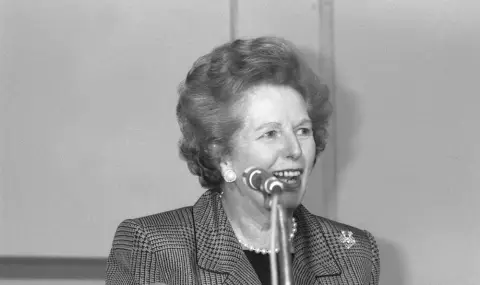Margaret Thatcher will go down in the history books as Britain's longest-serving Prime Minister of the 20th century. She held this post from 1979 to 1990. During this period, Thatcher set in motion far-reaching economic and social reforms. She cut social benefits and cut subsidies to state-owned enterprises, leading to mass protests, especially by unions. However, it was Thatcher who successfully limited their influence, regardless of their traditional strength. And suddenly all of Europe talked about "Thatcherism".
However, what the business in Great Britain praised her for, also gives rise to a number of criticisms. The reforms and unprecedented privatizations of state-owned companies, as well as the almost uncritical promotion of the free market economy, have ruined many fortunes. The number of unemployed increased to a record level of more than three million people. Their misery, however, did not affect the Iron Lady. She continued to follow her hard line, both inside the country and in international politics.
Thatcher and international politics
Thatcher will be remembered for the successful war for the Falkland Islands, although Argentina still considers the former ruler of Downing Street a war criminal, who gave the order to sink the military ship "General Belgrano". and responsible for the deaths of 323 people on board. Her commitment to the release of the Chilean dictator Pinochet, just because he had given her help during the war against Argentina, drew a lot of criticism.
To this day, European diplomats remember with horror the year 1984, when Margaret Thatcher managed, in her typically unyielding way, to create the so-called "British exemptions" (it is about the country paying lower contributions to the general European budget than it should have). At the time, she had stated plain and simple: "I want my money back" (I want my money back). However, this not very diplomatic approach turned out to be entirely successful. The negotiation tactics of the always neatly dressed woman with a "concrete haircut" it was not by chance that it was called "handbagging" - it is said that in crucial situations she decisively hit the table with a bag.
During German Unification, Thatcher also played a crucial role. As she admits, her ideas about Germany were created under the impression of the first years of the Second World War, without changing significantly even decades later. That is precisely why she remained a determined opponent of the Unification to the last. When it becomes clear that she will not be able to prevail after all, she pushes at least the condition to preserve the post-war expansion of borders.
Thatcher continued to pull the strings after the 1990s
Even when Thatcher stepped down as Prime Minister in 1990, handing over power and leadership of the Conservative Party to John Major, the Iron Lady continued to pull the strings behind the scenes. Major himself later complained that Thatcher had sabotaged his government.
The Iron Lady celebrated her 80th birthday with a huge party alongside Britain's Queen Elizabeth II, who is almost her age and with whom the former prime minister had a particularly close relationship. 650 specially selected guests were invited to the celebration in question.
In recent years, Thatcher, suffering from dementia, lived in seclusion and away from any public events. She died on April 8, 2013 at the age of 87 following a stroke.
